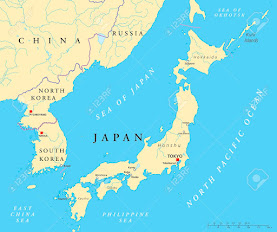Japan, a
captivating country with a rich heritage, has witnessed a remarkable cultural
journey throughout its history. From its ancient origins to its modern-day
innovations, Japan's culture has continuously evolved, creating unique traditions,
customs, and values.
Ancient
Japan: The Birth of Tradition
Japan's
cultural roots trace back to ancient times, where the indigenous Jomon people
crafted intricate pottery and embraced a nature-centric way of life. These
early inhabitants laid the foundation for Japan's deep connection to the
natural world, something that persists today.
As
centuries passed, Japan was introduced to Chinese and Korean influences, which
brought with them elements of Buddhism and Confucianism. These spiritual and
philosophical teachings embedded themselves in Japanese society, influencing
art, literature, and governance.
Feudal
Japan: Samurai and Zen
During the
feudal period, Japan saw the rise of the samurai class, elite warriors who
adhered to a strict code of conduct known as Bushido. This code emphasized
honor, loyalty, and courage. Zen Buddhism also flourished during this era,
promoting meditation and mindfulness.
Traditional
Japanese arts, such as tea ceremonies (chanoyu) and ikebana (flower arranging),
gained popularity. These practices emphasized simplicity, beauty, and
mindfulness, reflecting Japan's cultural values.
Edo Period:
The Age of Peace
The Edo
period, characterized by long-lasting peace, brought about cultural
renaissance. Kabuki theater, ukiyo-e woodblock prints, and haiku poetry thrived
during this time, offering entertainment and artistic expression to the masses.
Cultural
traditions like the wearing of kimono, the art of calligraphy, and the practice
of martial arts continued to play significant roles in everyday life.
Meiji Era:
Modernization and Westernization
The late
19th century saw Japan embrace modernization and open itself to the world. The
Meiji Restoration marked the end of samurai rule and ushered in a period of
rapid change. Japan adopted Western technology, fashion, and education systems
while preserving its cultural identity.
Japanese
culture evolved to embrace new ideas while maintaining traditional values,
resulting in the creation of a unique hybrid culture.
Post-WWII:
A Global Cultural Influence
After World
War II, Japan's cultural influence reached a global scale. Japanese pop
culture, including anime, manga, and video games, captivated audiences
worldwide. Traditional arts like Ikebana and tea ceremonies continued to
thrive, even during urbanization.
Contemporary
Japan: Harmony of Old and New
Today,
Japan stands as a testament to cultural resilience and adaptation. Traditional
arts coexist harmoniously with modern innovations, such as high-speed trains,
cutting-edge technology, and architecture.
Japanese
cuisine, including sushi, tempura, and ramen, has gained global popularity,
showcasing the country's culinary mastery.
Japan's
cultural journey through the ages is a testament to its ability to adapt,
evolve, and embrace change while preserving its rich heritage. From its ancient
beginnings to its modern-day global influence, Japan's culture remains a
captivating blend of tradition and innovation, a testament to its enduring
charm.











0 Comentarios